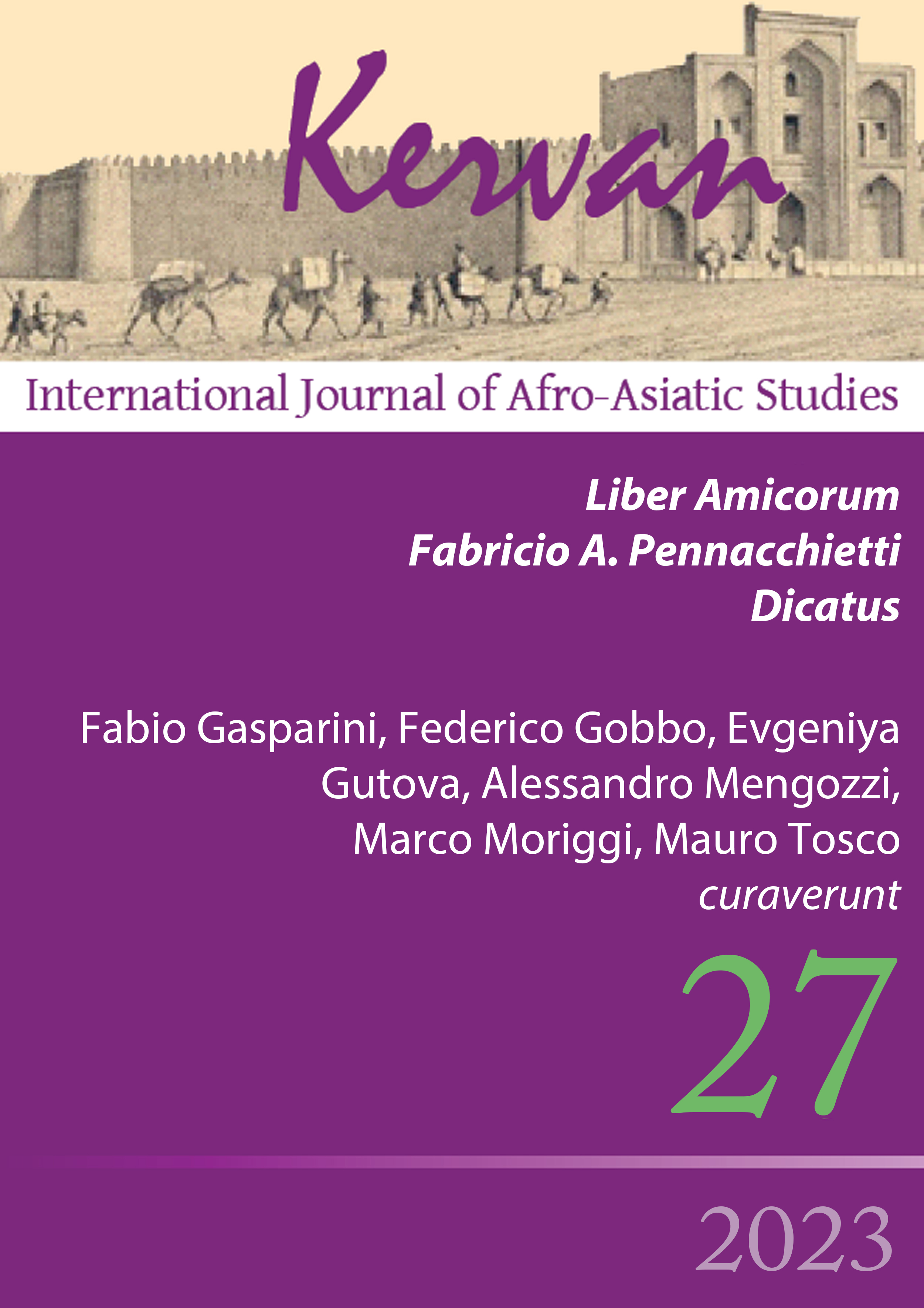Islamic traits and motifs in Jewish and Christian North-Eastern Neo-Aramaic languages and literatures
DOI:
https://doi.org/10.13135/1825-263X/8223Abstract
The North-Eastern Neo-Aramaic dialects, historically spoken by Christian and Jewish minorities in the vast territory that includes southeastern Turkey, northern Iraq and northwestern Iran, belong to a region of linguistic convergence which includes varieties of Arabic, Kurdish and Turkish, spoken by the Muslim majority of the population, and in which prestigious literary—then national—Islamic languages (Arabic, Persian, Turkish) have exerted considerable influence. The results of these contacts have received much attention from scholars, and in some cases Islamic features have been isolated in the lexicon of Modern Aramaic varieties. An apparently paradoxical integration of terms with strong Islamic connotations into the religious language of Christians and Jews has also been observed. From a cultural and literary point of view, the minorities share with the Islamic majority much of the material culture, folklore, literary genres and, in some cases, stories and motifs, the ultimate origin of which may also have been Christian or Jewish.
Downloads
Downloads
Published
Issue
Section
License
Gli autori che pubblicano su Kervan accettano le seguenti condizioni:
- Gli autori mantengono i diritti sulla loro opera e cedono alla rivista il diritto di prima pubblicazione dell'opera, contemporaneamente licenziata sotto una Licenza Creative Commons - Attribuzione che permette ad altri di condividere l'opera indicando la paternità intellettuale e la prima pubblicazione su questa rivista.
- Gli autori possono aderire ad altri accordi di licenza non esclusiva per la distribuzione della versione dell'opera pubblicata (es. depositarla in un archivio istituzionale o pubblicarla in una monografia), a patto di indicare che la prima pubblicazione è avvenuta su questa rivista.


 The articles that have appeared on Kervan since 2016 are rated as Class A in the system of National Scientific Qualification (ASN, disciplines 10/N1 and 10/N3).
The articles that have appeared on Kervan since 2016 are rated as Class A in the system of National Scientific Qualification (ASN, disciplines 10/N1 and 10/N3). The journal has been approved for inclusion in DOAJ. The DOAJ listing of the journal is available at
The journal has been approved for inclusion in DOAJ. The DOAJ listing of the journal is available at  The journal has been approved for inclusion in ERIH PLUS. The ERIH PLUS listing of the journal is available at
The journal has been approved for inclusion in ERIH PLUS. The ERIH PLUS listing of the journal is available at  Kervan was just accepted for indexing in SCOPUS. This important milestone ensures that articles published in Kervan are easily found when searching for library, archives and Information science and it enables Kervan authors to keep track of how often their article has been cited by others.
Kervan was just accepted for indexing in SCOPUS. This important milestone ensures that articles published in Kervan are easily found when searching for library, archives and Information science and it enables Kervan authors to keep track of how often their article has been cited by others.

